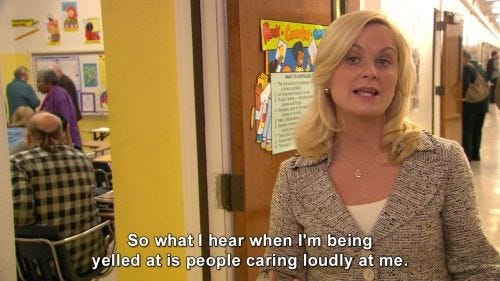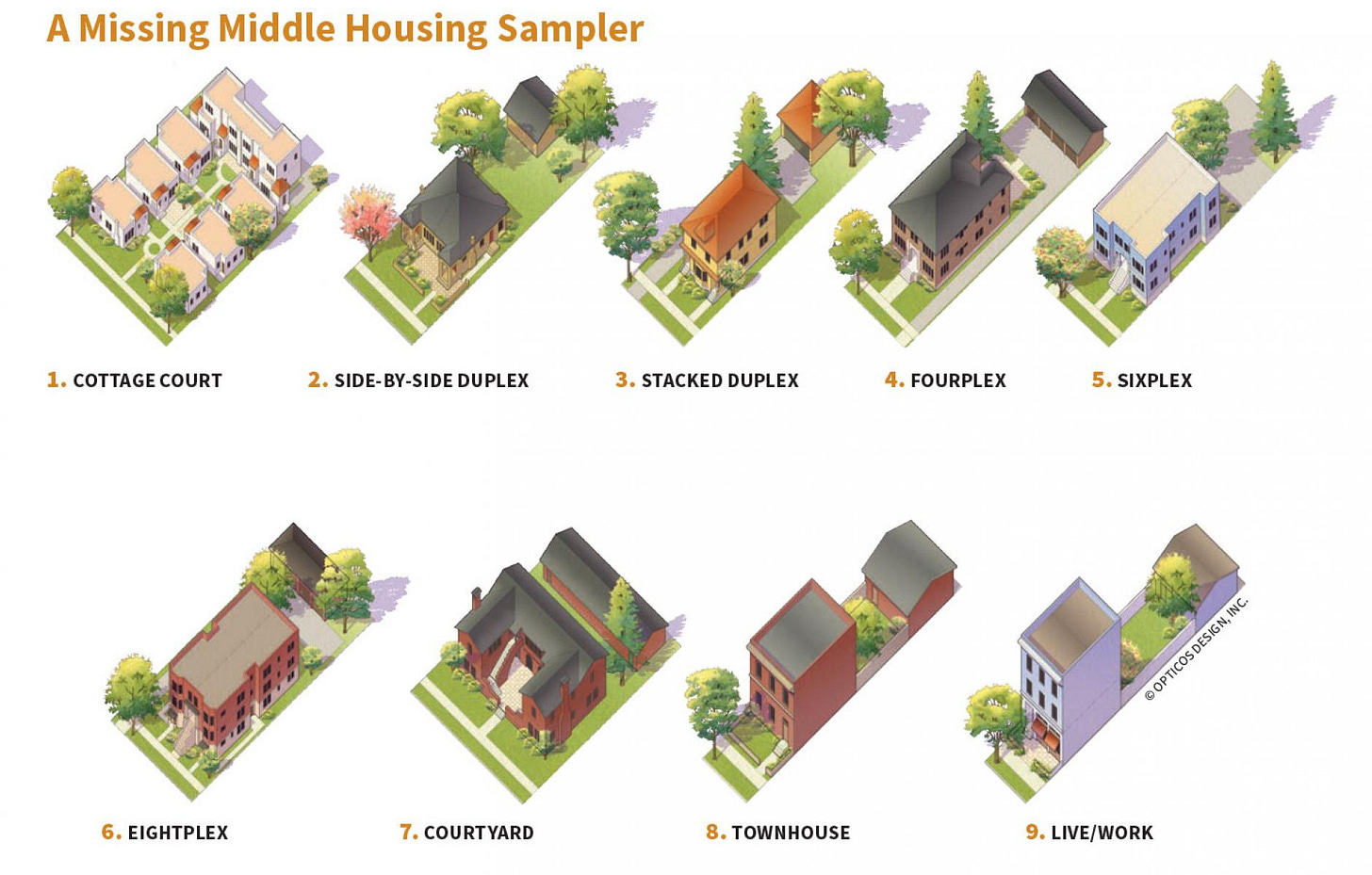Deeper Dive - 3 Hidden Forces Behind the Housing Crisis (That No One's Talking About)
Why young adults can't afford housing...and what this signals about America's future
My wife and I are wrapping up a week’s vacation in Kelowna, British Columbia, where young families are everywhere. Compared to our home in Madison, Wisconsin, where Boomers are everywhere, I wondered why. I learned that when local leaders saw housing prices skyrocket—which benefited older, wealthier buyers and priced young people out of the market—they updated their short-term rental policy - no more Airbnb. The rental market returned to more family-friendly rates, and the city feels young, fresh, vibrant, and creative.
But this isn't about STRs or Canada. It's about the U.S. housing crisis that's crippling our next generation and America’s future.
In this two-part series, I’ll explain three surprising reasons we’re in this mess, and what all of us can do to get out of it.
Here we go, three surprising reasons we’re in this mess…
1. Wall Street Is Your Landlord
Between January and March 2024, private investors bought 14.8% of all homes sold, about one in seven homes. In states like Georgia and North Carolina, private equity now owns one in every five apartment units. These firms concentrate in Sunbelt states (see map) with the weakest tenant protections and the fewest rights.

That’s where we stand now.
Here’s what’s coming: by 2030, private equity firms are on pace to control 40% of the U.S. single-family rental market.
So what?
Private equity firms are not buying up housing stock to make it more affordable, available, or higher quality. Their motive is profit: what costs can we cut, how high can we adjust the rent, and when can we flip this for profit?
Don’t take my word for it. Benzinga sells real estate investments. Their website (screenshot below, highlighting mine) clearly describes why real estate is such a good investment:
Sounds a bit like extortion, “the practice of obtaining something, especially money, through force or threats.”
The bottom line: Wall Street extracts profits from people's basic need for housing - and they're scaling up fast. Your local government needs to decide: Do we protect residents or private equity returns?
2. Tax Codes and Housing Policy Heavily Favor the “Haves”
The U.S. tax code practically guarantees a housing crisis because real estate development and investment are among the most heavily subsidized and protected industries.
Let’s start with subsidies:
"There's probably no special interest that's more favored by the tax code than real estate." - Steven M. Rosenthal, real estate tax whiz and senior fellow at the Urban-Brookings Tax Policy Center.
Economist and former Congressional Budget Office director Douglas Holtz-Eakin calls it "unbelievable... due to the unique weirdness of the American love affair with homeownership."
America’s real estate tax deductions used to be spread across far more Americans. Now, they’ve grown deformed and award far more benefits to affluent owners and investors. The 2017 tax overhaul puts an exclamation point on it.
ProPublica analyzed Freddie Mac’s biggest apartment complex deals and found that private equity firms were behind 85% of them. That means taxpayers are essentially subsidizing Wall Street's buying spree of America's rental housing.
Now let’s talk about local policies that favor those who already have housing.
If your community - like mine - needs more housing, there are two choices:
Out towards exurbs and suburbs
Up via multi-story and multi-family housing
Option 1 is difficult if your community cannot annex adjacent communities.
Option 2 is difficult if current residents feel threatened by multi-family housing. This is why homeowners pack City Council meetings to oppose apartments or multifamily housing.
A friend, a City Planner, shared a common story:
A resident opposed higher-density development in her neighborhood because it might lower her home’s value. (Most Americans have under-saved for retirement, so maintaining their home’s value is a desperately important part of their retirement or wealth portfolio.)
After listening closely to the resident, a City Councilmember challenged the resident to consider the public good. After all, the community was growing, and higher-density housing would help alleviate the growing pains.
The resident replied, "My interest IS the public interest."
{Cue public servant Leslie Knope}
The bottom line: Our tax and financial regulations create perfect conditions for a housing crisis. The profits are privatized, the costs are socialized.
3. Unconscious Bias - The Southwest Airlines Problem
Current zoning ordinances were designed by people who live in single-family homes and, consciously or unconsciously, believe "Others want what I have."
This is confirmation bias - seeing what confirms your beliefs and tuning out what doesn't. This bias is now law in many communities, persisting because those who set the zoning laws don't see, or don’t value, demand for anything beyond single-family homes.
This reminds me of Southwest Airlines' battle with the U.S. Government in the 1970s:
Southwest: We want to build a market for leisure travel with cheap tickets.
US Government: There is no market for leisure travel. Only business people fly.
Southwest: More people would fly if tickets were cheaper.
US Government: If cheaper tickets worked, airlines would already offer them.
Southwest couldn't prove leisure travel demand existed because it wasn't visible yet. But the market was absolutely there.
I've heard this exact conversation in dozens of communities:
Citizens: We need more housing choices at different prices. We're getting squeezed out.
Zoning Committee: There's no demand for different housing types. Everyone here lives in single-family homes.
Citizens: Many people can't afford single-family homes. We need options.
Zoning Committee: Developers would build cheaper options if they worked.
The demand exists, just like Southwest's leisure travel market. But decision-makers can't see it, so these practices persist, deeply affecting young families and those who are trying to get their first foot on America’s once-robust economic ladder:
70% of residential areas ban apartments in nearly every major U.S. city
Single-room occupancy (SRO) housing—where residents rent a private bedroom and share the kitchen and bathroom—is outlawed in most communities. They were called boarding houses in ye olden times.
Cooperative and manufactured housing face restrictions
High-density proposals get shouted down as "crime magnets" (a racist and classist dog whistle)
Minimum lot sizes and parking requirements inflate costs
One angry neighbor can derail entire developments (what Francis Fukuyama calls "vetocracy")
Some forward-looking cities are experimenting with housing policy to incent missing middle housing:
In 2015, the Minneapolis City Council eliminated parking requirements for buildings with 3-50 units near high-frequency public transit. In 2019, the Council eliminated single-family housing citywide. The early results show increases in multi-family housing and a decrease in rental hike increases.
Houston decreased lot sizes for single-family homes from 4,000 to 1,000 square feet. This significantly increased the supply of moderately priced family-sized homes in the city.
The bottom line: By over-emphasizing single-family homes, we've made more affordable housing (often called “missing middle housing”) options illegal, and act surprised when our kids can’t afford to live in the cities they prefer.
Want to know what we can do about this? The solutions might surprise you. Part 2 comes out in two weeks.
Note: Yes, there's also a supply and demand efficiency problem - builders aren't building enough housing fast enough. But that's been covered extensively by others. Here's excellent writing on that issue if you want to dive deeper.
Love from the Okanagan Valley,
~ Rebecca









Great article, Rebecca. This certainly mirrors what we're seeing in Austin, Texas right now. A new turn in our City Council has elected a group of people who see the desperate need for affordable housing in a city that is squeezing out younger people who may never know the possibility of home ownership. Yet, as in many cities, the opposition comes from folks who have owned homes for decades and don't want a denser community; they like things just fine the way they are. It appears to be an ongoing battle in communities across the United States.